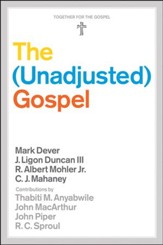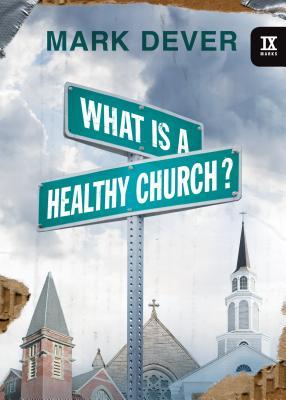1. Make the Word of God central. 2. Make ongoing Gospel living central. 3. Make clear the corporate implications of repentance and faith in genuine life-on-life relationships. 4. Draw a line between covenanted members and nonmembers. 5. Have a shared burden among the elders to model discipleship. 6. Have regular congregation times when God’s work of discipleship is publicly shared and celebrated. 7. Pray openly and regularly for God to create a culture of discipleship. 8. Add application to sermons about biblically caring for one another. 9. Realize the importance of the congregation to be together. 10. Pray for humility. 11. Promote good books that help make disciples and train disciplers. 12. Have conversations that are spiritually enriching. 13. Discourage rigid rules and formal discipling systems. 14. Avoid people having an over dependency on one person. 15. Avoid discipling people from the opposite gender, but encourage discipleship relationships that cross age and race. 16. Avoid making discipleship a specific ministry as compared to having it permeate the culture both within and outside of the church.
Testimony is, of course, popular in our postmodern, that’s-good-for-you age. Who would object to your thinking you’ve gotten something good from Christ? But wait and see what happens when you try to move the conversation from what Jesus has done for you to the facts of the life, death, and resurrection of Christ, and how that all applies to your nonbelieving friend. That’s when you discover that testimony is not necessarily evangelism.
An understanding of the sufficiency of Scripture is the context in which we assert, maintain and practice the centrality of Scripture in the life of the church.
"God Told Me" and the Sufficiency of Scripture, ©9Marks. Website: www.9Marks.org. Email: info@9marks.org. Toll Free: (888) 543-1030.
The call to evangelism is a call to turn our lives outward from focusing on ourselves and our needs to focusing on God and on others made in His image who are still at enmity with Him, alienated from Him, and in need of salvation from sin and guilt.
[Evangelism] is telling the good news about Jesus, and doing it with honesty, urgency, and joy, using the Bible, living a life that backs it up, and praying, and doing it all for the glory of God.
The Christian call to evangelism is not simply a call to persuade people to make decisions, but rather to proclaim to them the good news of salvation in Christ, to call them to repentance, and to give God the glory for regeneration and conversion.
If you don’t believe that the gospel is the good news of God’s action – the Father electing, the Son dying, the Spirit drawing – that conversion is only our response to God’s giving us the grace-gifts of repentance and faith, and that evangelism is our simple, faithful, prayerful telling of this good news, then you will actually damage the evangelistic mission of the church by making false converts.
Who can deny that much modern evangelism has become emotionally manipulative, seeking simply to cause a momentary decision of the sinner’s will, yet neglecting the biblical idea that conversion is the result of the supernatural, gracious act of God toward the sinner?
According to the Bible, good motives for evangelism are a desire to be obedient, a love for the lost, and a love for God.
The bad fruit of false evangelism:
1. Worldly people feeling assurance because they made a decision one time.
2. Real revival being lost amid our own manufactured and scheduled meetings that we euphemistically call “revivals” (as if we could determine where and when the wind of God’s Spirit will move).
3. Church memberships markedly larger than the number of those involved with the church.
4. Inaction in our own lives, as we ignore the evangelistic mandate – the call to share the good news.
We need to know what kind of sales we can close and what kind we can’t. The redemption of an eternal soul is one sale that we, in our own strength, cannot accomplish. And we need to know it, not so that we won’t preach the gospel, but so that we won’t allow the gospel that is preached to be molded by what finally gets a response!
Do you want to know that your [Christian] life is real? Commit yourself to a local group of saved sinners. Try to love them. Don’t just do it for three weeks. Don’t just do it for six months. Do it for years. And I think you’ll find out, and others will, too, whether or not you love God. The truth will show itself.
I think many times we don’t evangelize because we undertake everything in our own power. We attempt to leave God out of it. We forget that it is His will and pleasure for His gospel to be known. He wants sinners saved. Simply put, we don’t pray for opportunities to share the gospel, so how surprised should we be when they don’t come? If you’re not evangelizing because you think you lack opportunities, pray and be amazed as God answers your prayers.
As John Stott has said, “To ‘evangelize’…does not mean to win converts…but simply to announce the good news, irrespective of the results.”
You and aren’t called to use our extensive powers to convict and change the sinner while God stands back as a gentleman, quietly waiting for the spiritual corpse, His declared spiritual enemy, to invite God into his heart. Rather, we should resolve to preach the gospel like gentlemen, persuading while knowing we can’t regenerate anyone, and then stand back while God uses all His extensive powers to convict and change the sinner. Then we’ll see clearly who it is that can really call the dead to life, and although He’ll use us in the doing of it, it’s not you and I who are actually doing it.
It is true that the Lord’s Supper is only for sinners. But within that group, it is only for repentant sinners.
Clarity with the claims of Christ certainly will include the translation of the gospel into words that our hearer understands, but it doesn’t necessarily mean translating it into words that our hearer will like. Too often, advocates of relevant evangelism verge over into being advocates of irrelevant nonevangelism. A gospel that in no way offends the sinner has not been understood.
Members shall be liable to the discipline of the church for the following causes: For any outward violations of the moral law. For pursuing any course which may, in the judgment of the church, be disreputable to it as a body. For absenting themselves habitually without good reasons, from the church at the seasons set apart for public worship. For holding and advocating doctrines opposed to those set forth in (the statement of faith). For neglecting or refusing to contribute toward defraying the expenses of the church according to their several abilities. For treating the acts and doings of the church contemptuously, or pursuing such a course as is calculated to produce discord. For divulging to persons not interested, what is done in the meetings of the church. For pursuing any course of conduct unbecoming good citizens and professing Christians.
Capitol Hill Baptist Church, Quoted in: Mark Dever, Nine Marks of a Healthy Church, Crossway, 2000, p. 169. , February 1878
Loving engagement in each other’s spiritual lives must be normalized in a positive and formative way before corrective discipline can be sustained. Without this context of deeply interpenetrating spiritual relationships, corrective discipline will be like walking up to a child whom you see only once a month and spanking him in the street. It will likely be perceived as harsh, if not abusive, rather than the tough but responsible outworking of loving concern for another’s spiritual good.
Doing Church Discipline, taken from The Deliberate Church, © 2005, Crossway Books, a division of Good News Publishers, Wheaton Illinois 60187, p. 69, www.crosswaybooks.org.
How many churches today are full of people who have been psychologically pressured but never truly converted?
Trusting Christ will always show itself by following Him.
Our continuing to pray for someone is a testimony of our faith not in them or in ourselves, but in God.
God-Given Growth, Tabletalk, October 2007, p. 11. Used by Permission of Ligonier Ministries.
What is repentance? It is turning from the sins you love to the holy God you’re called to love. It is admitting that you’re not God. It is beginning to value Jesus more than your immediate pleasure. It is giving up those things the Bible calls sin and leaving them to follow Jesus.
In order to see God’s church grow, we should use the means God has given to us… Preaching the Gospel is the normal way God grows His church. Added to this there is also prayer. Again and again in the book of Acts we find the early Christians in prayer. And as we beseech God for conversion and for maturity, we find God granting our prayers. The more we pray the more we acknowledge that God is the reason for any growth that comes. We acknowledge, in humility, that any growth that comes does not ultimately come from us.
God-Given Growth, Tabletalk, October 2007, p. 10. Used by Permission of Ligonier Ministries.
[We are] not to suffer for doing wrong, but only for doing right, like Christ Himself did. What could it mean for…us to think that we are following Christ, and refuse to go with Him to suffering, and even to the cross?
Apologetics is answering questions and objections people may have about God or Christ or about the Bible or the message of the gospel.
We are called to love others. We share the gospel became we love people. And we don’t share the gospel because we don’t love people. Instead, we wrongly fear them. We don’t want to cause awkwardness. We want their respect, and after all, we figure, if we try to share the gospel with them, we’ll look foolish! And so we are quiet. We protect our pride at the cost of their souls. In the name of not wanting to look weird, we are content to be complicit in their being lost.
Embracing trials doesn’t mean that we are to pretend that they are not trials. It simply means that we are not to let our reactions to them be determined by how they first feel to us.
An expositional sermon is a sermon in which the point of a biblical text is the point of the sermon, applied to the life of the congregation.
Expositional preaching is not simply producing a verbal commentary on some passage of Scripture. Rather, expositional preaching is that preaching which takes for the point of a sermon the point of a particular passage of Scripture. That’s it. The preacher opens the Word and unfolds it for the people of God.
We do not fail in our evangelism if we faithfully tell the gospel to someone who is not subsequently converted; we fail only if we do not faithfully tell the gospel at all.
Maybe you’ve thought that you really need to be discipled before you can disciple. It is certainly crucial to be a disciple. But Jesus gave the command to make disciples to you. And part of being a disciple, in fact, is to disciple. Part of growing in maturity is helping others grow in maturity. God wants you to be in churches not merely so that your needs are met, but so that you will be equipped and encouraged to care for others.
Discipling, ©9Marks. Website: www.9Marks.org. Email: info@9marks.org. Toll Free: (888) 543-1030. Used by Permission. Page 20.
David Wells has observed, “It is very easy to build churches in which seekers congregate; it is very hard to build churches in which biblical faith is maturing into genuine discipleship.”
Discipling, ©9Marks. Website: www.9Marks.org. Email: info@9marks.org. Toll Free: (888) 543-1030. Used by Permission. Page 19.
The fundamental response to God’s radical love for us is for us to radically love Him.
Discipling, ©9Marks. Website: www.9Marks.org. Email: info@9marks.org. Toll Free: (888) 543-1030. Used by Permission. Page 15.
Discipling is deliberately doing spiritual good to someone so that he or she will be more like Christ. Discipleship is the term I use to describe our own following Christ. Discipling is the subset of that, which is helping someone else follow Christ.
Discipling, ©9Marks. Website: www.9Marks.org. Email: info@9marks.org. Toll Free: (888) 543-1030. Used by Permission. Page 13.
The work of discipling occurs in the present, but it has its eyes set on the Last Day. It requires long-term thinking. It requires an investor’s mentality, knowing that the return is eternal. And the investment occurs through God’s Word. We must proclaim God’s Word is the seed that ultimately bears fruit, even if we don’t see it in the short term…trust that God’s Word does not return void. You will see the harvest later.
Discipling, ©9Marks. Website: www.9Marks.org. Email: info@9marks.org. Toll Free: (888) 543-1030. Used by Permission. Page 32-33.
Pastor…your toil and labor cannot root in your love for them or their love for you. It must root in your love for Christ, His love for you, and His love for them. He has purchased them with His blood. And you mean to present them to Him. It is for Him that you do it all.
Discipling, ©9Marks. Website: www.9Marks.org. Email: info@9marks.org. Toll Free: (888) 543-1030. Used by Permission. Page 33.
Discipling others now is how I try to leave time-bombs of grace.
Discipling, ©9Marks. Website: www.9Marks.org. Email: info@9marks.org. Toll Free: (888) 543-1030. Used by Permission. Page 34.
A disciple is one who disciples. He proclaims now so that he might present later.
Discipling, ©9Marks. Website: www.9Marks.org. Email: info@9marks.org. Toll Free: (888) 543-1030. Used by Permission. Page 34.
Pastors teaching the Word is the core of a church’s discipling ministry. It provides the food and water that feeds all the other discipling relationships within the church.
Discipling, ©9Marks. Website: www.9Marks.org. Email: info@9marks.org. Toll Free: (888) 543-1030. Used by Permission. Page 60.
Churches don’t need programs so much as they need cultures of discipling, cultures where each member prioritizes the spiritual health of others.
Discipling, ©9Marks. Website: www.9Marks.org. Email: info@9marks.org. Toll Free: (888) 543-1030. Used by Permission. Page 68.
Discipling means helping others follow Jesus. Discipling is a relationship in which we seek to do spiritual good for someone by initiating, teaching, correcting, modeling, loving, humbling ourselves, counseling, and influencing.
Discipling, ©9Marks. Website: www.9Marks.org. Email: info@9marks.org. Toll Free: (888) 543-1030. Used by Permission. Page 74.
Have you ever heard of the life – truth – life pattern? Your life should attract people to listen to you; your teaching should then work for their transformation; their transformed lives should then illustrate what you taught, which in turn attracts people to listen to them.
Discipling, ©9Marks. Website: www.9Marks.org. Email: info@9marks.org. Toll Free: (888) 543-1030. Used by Permission. Page 84.
So much of discipling is doing what you ordinarily do but bringing people along with you and having meaningful conversations like Jesus did.
Discipling, ©9Marks. Website: www.9Marks.org. Email: info@9marks.org. Toll Free: (888) 543-1030. Used by Permission. Page 85.
So many times I’ve seen men, particularly younger guys, act as if real leadership is shown in correcting others. That’s why young men’s sermons often scold. What they haven’t figured out is that you can often accomplish more by encouragement. There are times to scold. But 80 to 90 percent of what you hope to correct can be accomplished through encouragement. If you look back at your life and consider who influenced you the most, you will probably find that it’s the people who believed in you.
Trials expose what our hearts truly trust in, and what our hopes are. Time passing in a fallen world always brings trials. Trials are key times in discipling relationships, whether the trail is in the life of the one discipling or the one being disciple.
Discipling, ©9Marks. Website: www.9Marks.org. Email: info@9marks.org. Toll Free: (888) 543-1030. Used by Permission. Page 88.
Really, the “how” of discipling is not that complicated. It’s about doing life together with other people as you all journey toward Christ. We make friends and then walk them in a Christward direction.
Discipling, ©9Marks. Website: www.9Marks.org. Email: info@9marks.org. Toll Free: (888) 543-1030. Used by Permission. Page 86.
Faith is the instrument that God uses to save us through Christ.
Propitiation by Mark Dever and Michael Lawrence taken from It Is Well, by Mark Dever and Michael Lawrence, copyright 2010, Crossway Books, a division of Good News Publishers, Wheaton Illinois 60187, www.crosswaybooks.org, page 126.
If [God] were not wrathful against sin, we would question whether He is personally good. What would it mean for Him to say that He is committed to oppose evil if He refused to judge it?
Propitiation by Mark Dever and Michael Lawrence taken from It Is Well, by Mark Dever and Michael Lawrence, copyright 2010, Crossway Books, a division of Good News Publishers, Wheaton Illinois 60187, www.crosswaybooks.org, page 125.
These first-century Jews – thousands and thousands of them – suddenly changed their normal day of worship from Saturday to Sunday. Sociologists tell us that the most ancient parts of a culture are found in its religious rites. They are the most conservative elements of a culture, the least likely and slowest to change. What then can account for this sudden change around the Mediterranean, among thousands of first-century Jews, from worshiping on Saturday to worshiping on Sunday?
Delivered Over to Death for Our Sins by Mark Dever and Michael Lawrence taken from It Is Well, by Mark Dever and Michael Lawrence, copyright 2010, Crossway Books, a division of Good News Publishers, Wheaton Illinois 60187, www.crosswaybooks.org, page 141.
A denial of the resurrection does not figure in early anti-Christian apologetics. That would be the obvious thing to attack if you wanted to stamp out this fledgling religion, right? But no one attacks it. Why do you think that is? I think it was because too many people knew it was true. There may have been bewilderment about its significance, but the fact of Jesus’ resurrection was never denied. Jesus was clearly raised from the dead. The argument was simply about what that could possibly mean.
Delivered Over to Death for Our Sins by Mark Dever and Michael Lawrence taken from It Is Well, by Mark Dever and Michael Lawrence, copyright 2010, Crossway Books, a division of Good News Publishers, Wheaton Illinois 60187, www.crosswaybooks.org, page 141.
The disciples were transformed. Something happened to Peter. Just a few days earlier his hopes had been dashed and he had denied Jesus in front of a few people he had never met. Yet just a few days later, he was fearlessly preaching about Jesus and explaining Jesus’ death to the very people who killed Him. From dashed hopes to death-defying faith – not just in Peter, but in all the disciples.
Delivered Over to Death for Our Sins by Mark Dever and Michael Lawrence taken from It Is Well, by Mark Dever and Michael Lawrence, copyright 2010, Crossway Books, a division of Good News Publishers, Wheaton Illinois 60187, www.crosswaybooks.org, page 140.
God’s answer for your guilt is not to explain it away by circumstances that have victimized you, but to call you to own your sins fully and to entrust them all to Jesus Christ by faith. Jesus Christ is our substitute. He has taken our penalty.
Crushed for Our Inequities by Mark Dever and Michael Lawrence taken from It Is Well, by Mark Dever and Michael Lawrence, copyright 2010, Crossway Books, a division of Good News Publishers, Wheaton Illinois 60187, www.crosswaybooks.org, page 57.
Every other religion in the world is the religion of “do,” but …Christianity alone is the religion of “done.”
The Day of Atonement by Mark Dever and Michael Lawrence taken from It Is Well, by Mark Dever and Michael Lawrence, copyright 2010, Crossway Books, a division of Good News Publishers, Wheaton Illinois 60187, www.crosswaybooks.org, page 46.
If you are truly trusting in Christ, you can’t confess a sin for which God has not provided forgiveness in Jesus. Indeed, if you work at the discipline of confessing your sin, it should not lead to despair at all, but rather to rejoicing over the extent of God’s love to you in Christ.
The Day of Atonement by Mark Dever and Michael Lawrence taken from It Is Well, by Mark Dever and Michael Lawrence, copyright 2010, Crossway Books, a division of Good News Publishers, Wheaton Illinois 60187, www.crosswaybooks.org, page 42.
Paul says in Romans 12:19 that we are not to take revenge, and the reason is precisely that we should not expect God not to take revenge. Do not take revenge, Paul says because God most certainly will.
The Day of Atonement by Mark Dever and Michael Lawrence taken from It Is Well, by Mark Dever and Michael Lawrence, copyright 2010, Crossway Books, a division of Good News Publishers, Wheaton Illinois 60187, www.crosswaybooks.org, page 34.
[Jesus] didn’t die on behalf of or for the benefit of, but He literally died in their stead, or in their place. They deserved death, but because He died for them, now they will not die.
Ransom for Many by Mark Dever and Michael Lawrence taken from It Is Well, by Mark Dever and Michael Lawrence, copyright 2010, Crossway Books, a division of Good News Publishers, Wheaton Illinois 60187, www.crosswaybooks.org, page 73-73.
Getting wet is the easiest command Jesus gave us to follow. It only gets harder from there.
The Christian call to evangelism is a call not simply to persuade people to make decisions but rather to proclaim to them the Good News of salvation in Christ, to call them to repentance, and to give God the glory for regeneration and conversion. We don’t fail in our evangelism if we faithfully present the Gospel and yet the person is not converted; we fail only if we don’t faithfully present the Gospel at all.
Nine Marks of a Healthy Church, Crossway, 2000, p. 123. Get this book!
Biblical church discipline is simple obedience to God and a simple confession that we need help. We cannot live the Christian life alone. Our purpose in church discipline is positive for the individual disciplined, for other Christians as they see the real danger of sin, for the health of the church as a whole, and for the corporate witness of the church to those outside. Most of all, our holiness is to reflect the holiness of God. It should mean something to be a member of the church, not for our pride’s sake but for God’s name’s sake. Biblical church discipline is a mark of a healthy church.
Nine Marks of a Healthy Church, Crossway, 2000, p. 178. Get this book!
Nonattendance, in the early years of our church, was considered one of the most sinister of sins, because it usually veiled all the other sins. When someone began to be in sin, you would expect them to stop attending.
Nine Marks of a Healthy Church, Crossway, 2000, p. 171. Get this book!
Greg Wills has written that, to many Christians in the past, “A church without discipline would hardly have counted as a church.” John Dagg wrote that, “When discipline leaves a church, Christ goes with it.” If we can’t say what something is not, we can’t very well say what it is.
Nine Marks of a Healthy Church, Crossway, 2000, p. 178. Get this book!
Church discipline is a powerful tool in evangelism. People notice when our lives are different, especially when there’s a whole community of people whose lives are different- not people whose lives are perfect, but whose lives are marked by genuinely trying to love God and love one another. When churches are seen as conforming to the world, it makes our evangelistic task all the more difficult. As Nigel Lee of English InterVarsity once said, we become so like the unbelievers they have no questions they want to ask us. May we so live that people are made constructively curious.
Nine Marks of a Healthy Church, Crossway, 2000, p. 176. Get this book!
Certainly, in Matthew 7:1, Jesus did forbid judging in one sense… But for now, note that if you read through that same gospel of Matthew, you’ll find that Jesus also clearly called us to rebuke others for sin, even rebuking them publicly if need be (Matt. 18:15-17; cf. Luke 17:3). Whatever Jesus meant by not judging in Matthew 7, He didn’t mean to rule out the kind of judging He mandated in Matthew 18… If you think about it, it is not really surprising that we as a church should be instructed to judge. After all, if we cannot say how a Christian should not live, how can we say how a Christian should live?
Nine Marks of a Healthy Church, Crossway, 2000, p. 155-156. Get this book!
I reviewed some of the church growth material coming from our denominational headquarters. One publication said that, in order to get our churches growing again, we should “open the front doors and close the back doors”… What we actually need to do is to close the front door and open the back door! If we really want to see our churches grow, we need to make it harder to join and we need to be better about excluding people. We need to be able to show that there is a distinction between the church and the world – that it means something to be a Christian. If someone who claims to be a Christian refuses to live as a Christian should live, we need to follow what Paul said and, for the glory of God and for that person’s own good, we need to exclude him or her form membership in the church.
Nine Marks of a Healthy Church, Crossway, 2000, p. 156-157. Get this book!
If our conversion, our turning, is basically understood to be something we do ourselves instead of being something God does in us, then we misunderstand it. Conversion certainly includes our own actions. We must make a sincere commitment. We must make a self-conscious decision. Even so, conversion – real conversion – is more than that. Scripture is clear in teaching that we are not all journeying toward God – some having found Him, others still seeking. Instead, Scripture presents us as needing to have our hearts replaced, our minds transformed, our spirits given life. We can do none of this for ourselves. The change each human needs, regardless of how we may outwardly appear, is so radical, so near our roots, that only God can bring it about. We need God to convert us.
Nine Marks of a Healthy Church, Crossway, 2000, p. 99. Get this book!
The laws of God are not simply external statutes, published and passed by some congress in heaven; rather, the laws of God reflect His very character. They are an expression of God Himself. So to break any of God’s laws is to live against God. It is to live contrary to Him.
Nine Marks of a Healthy Church, Crossway, 2000, p. 67. Get this book!
God will not be known if He does not speak, and we cannot know Him if He has not spoken a word that we can rely on. God must reveal Himself. That’s the point of the Bible. Because of our own sins, we could never know God otherwise. Either He speaks or we are forever lost in the darkness of our own speculations.
Nine Marks of a Healthy Church, Crossway, 2000, p. 35. Get this book!
The culture to which (the church) would conform in order to be relevant becomes so inextricably entwined with antagonism to the Gospel that to conform to it must mean a loss of the Gospel itself. In such a day, we must re-hear the Bible and re-imagine the concept of successful ministry not as necessarily immediately fruitful but as demonstrably faithful to God’s Word… Simply put, we need churches that are self-consciously distinct from the culture. We need churches in which the key indicator of success is not evident results but persevering biblical faithfulness. We need churches that help us recover those aspects of Christianity that are distinct from the world, and that unite us.
Nine Marks of a Healthy Church, Crossway, 2000, p. 14. Get this book!
A healthy church has a pervasive concern with church growth – not simply growing numbers but growing members. A church full of growing Christians is the kind of church growth I want as a pastor. Some today seem to think that one can be a “baby Christian” for a whole lifetime. Growth is seen to be an optional extra for particularly zealous disciples. But be very careful about taking that line of thought. Growth is a sign of life. Growing trees are living trees, and growing animals are living animals. When something stops growing, it dies.
Nine Marks of a Healthy Church, Crossway, 2000, p. 200. Get this book!
The first mark of a healthy church is expositional preaching. It is not only the first mark; it is far and away the most important of them all, because if you get this one right, all of the others should follow… If you get the priority of the Word established, then you have in place the single most important aspect of the church’s life, and growing health is virtually assured, because God has decided to act by His Spirit through His Word… The congregation’s commitment to the centrality of the Word coming from the front, from the preacher, the one specially gifted by God and called to that ministry, is the most important thing you can look for in a church.
Nine Marks of a Healthy Church, Crossway, 2000, p. 25, 38. Get this book!
Part of our evangelistic activity has to do with the way we relate to each other as believers. Jesus said, “By this all men will know that you are my disciples, if you love one another” (John 13:34-35). If you are not expressing proper Christian love to every member of your church, you are in disobedience to God and you are hindering the evangelistic work of your church.
Nine Marks of a Healthy Church, Crossway, 2000, p. 110. Get this book!
Asked about his accomplishments as a Reformer, Martin Luther said, “I simply taught, preached, wrote God’s Word: otherwise I did nothing… The Word did it all.” The Word of God brings life.
Nine Marks of a Healthy Church, Crossway, 2000, p. 36. Get this book!
The family is supposed to be our training ground in this loving authority. It is a “ramping-up” place that God has given us to learn love, respect, honor, obedience, and trust, in order to prepare us for relating to others and ultimately to God Himself.
Nine Marks of a Healthy Church, Crossway, 2000, p. 228. Get this book!
Jesus said, “I will build My church” (Matt. 16:18). If Jesus is committed to the church, should we be any less committed to it?
Nine Marks of a Healthy Church, Crossway, 2000, p. 145. Get this book!
We are all called to initiate involvement in each other’s lives… We covenant together to work and pray for unity, to walk together in love, to exercise care and watchfulness over each other, to faithfully admonish and entreat one another as occasion may require, to assemble together, to pray for each other, to rejoice and to bear with each other, and to pray for God’s help in all this.
Nine Marks of a Healthy Church, Crossway, 2000, p. 221. Get this book!
The church is primarily a body of people who profess and give evidence that they have been saved by God’s grace alone, for His glory alone, through faith alone, in Christ alone. This is what a New Testament church is; it is not a building. The early Christians didn’t have buildings for almost 300 years after the church began. The collection of people committed to Christ in a local area constitute a church.
Nine Marks of a Healthy Church, 2000, Crossway, p. 135. Get this book!
And what is the prescribed response? Is it to walk down an aisle? Is it to fill out a card, or to lift up a hand? Is it to make an appointment with a preacher, or to decide to be baptized and join the church? While any of those things may be involved, none of them necessarily is. The response of the Good News – the message that Paul preached and other Christians preached throughout the New Testament – is to repent and believe. Once we’ve heard the truth about our own sin and God’s holiness, about His love in sending Christ, and about Christ’s death and resurrection for our justification, then, as instructed by the first words of Jesus recorded in Mark’s gospel, our response is to “Repent and believe the good news!” (1:15).
Nine Marks of a Healthy Church, Crossway, 2000, p. 77. Get this book!
In our evangelism we must be partners with the Holy Spirit, presenting the Gospel but relying on the Holy Spirit of God to do the true convicting and convincing and converting.
Nine Marks of a Healthy Church, Crossway, 2000, p. 16. Get this book!
The Christian call to evangelism is a call not simply to persuade people to make decisions but rather to proclaim to them the Good News of salvation in Christ, to call them to repentance, and to give God the glory for regeneration and conversion. We don’t fail in our evangelism if we faithfully present the Gospel and yet the person is not converted; we fail only if we don’t faithfully present the Gospel at all.
Nine Marks of a Healthy Church, Crossway, 2000, p. 123. Get this book!
According to the Bible, our repentance and faith are gifts of God to us; our conversion, our great change, occurs only by God’s grace.
Nine Marks of a Healthy Church, Crossway, 2000, p. 100. Get this book!
Questions of who God is and of what He is like can never be considered irrelevant to the practical matters of church life. Different understandings of God will lead you to worship Him in different ways, and if some of those understandings are wrong, some of those ways in which you approach Him could be wrong as well.
Nine Marks of a Healthy Church, Crossway, 2000, p. 15. Get this book!
Christians are supposed to be conspicuously holy, not for our own reputation but for God’s. We are to be the light of the world, so that when people see our good deeds they will glorify God (Matt. 5:16).
Nine Marks of a Healthy Church, Crossway, 2000, p. 176. Get this book!
In his Treatise Concerning Religious Affections, Jonathan Edwards suggested that true growth in Christian discipleship is not finally mere excitement, increasing use of religious language, or a growing knowledge of Scripture. It is not even an evident increase in joy or in love or concern for the church. Even increases in zeal and praise to God and confidence of one’s own faith are not infallible evidences of true Christian growth. What, then, is evidence of true Christian growth? According to Edwards, while all these things may be evidences of true Christian growth, the only certain observable sign of such growth is a life of increasing holiness, rooted in Christian self-denial. The church should be marked by a vital concern for this kind of increasing godliness in the lives of its members.
Nine Marks of a Healthy Church, Crossway, 2000, p. 201. Get this book!
Deacons, too, fill a New Testament office, one rooted in Acts 6. While any absolute distinction between (deacons and elders) is difficult, the concern of the deacons are the practical details of church life: administration, maintenance, and the care of church members with physical needs.
Nine Marks of a Healthy Church, Crossway, 2000, p. 217. Get this book!
Alan Redpath has said about the membership of the average American church that 5 percent don’t exist, 10 percent can’t be found, 25 percent don’t attend, 50 percent show up on Sunday, 75 percent don’t attend the prayer meeting, 90 percent have no family worship, and 95 percent have never shared the Gospel with others.
Nine Marks of a Healthy Church, Crossway, 2000, p. 173. Get this book!
If the church is a building, then we must be bricks in it; if the church is a body, then we are its members; if the church is a household of faith, then we are part of that household. Sheep are in a flock, and branches on a vine. Biblically, if we are Christians we must be members of a church. This membership is not simply the record of a statement we once made or of affection toward a familiar place. It must be the reflection of a living commitment or it is worthless.
Nine Marks of a Healthy Church, Crossway, 2000, p. 148-149. Get this book!
The Bible clearly models a plurality of elders in each local church. Though it never suggests a specific number of elders for a particular congregation, the New Testament refers to “elders” in the plural in local churches (e.g., Acts 14:23; 16:4; 20:17; 21:18; Titus 1:5; James 5:14). When you read through Acts and the Epistles, there is always more than one elder being talked about.
Nine Marks of a Healthy Church, Crossway, 2000, p. 215-216. Get this book!
A church in which there is expositional preaching will be a church that is encouraging Christian growth – as we listen to God speaking from His Word into our lives. God’s Word is what we need if we are to grow. But we won’t learn that basic fact by looking to the culture around us to tell us what we most need. We can’t even look into our own hearts for such knowledge.
Nine Marks of a Healthy Church, Crossway, 2000, p. 191. Get this book!
At the same time, however, the kind of trust that we are called to give to our fellow imperfect humans in this life, be they family or friends, employers or government officials, or even leaders in a church, can never finally be earned. It must be given as a gift – a gift in faith, in trust more of the God who gives than of the leaders He has given (Eph. 4:11-13).
Nine Marks of a Healthy Church, Crossway, 2000, p. 214. Get this book!
The redemption of an eternal soul is one sale that I, in my own strength, cannot accomplish. I need to know that, not so that I won’t preach the Gospel, but so that I won’t allow my presentation of the Gospel to be molded by what I think will finally get a response and close a sale. Instead of using all my powers to convict and change the sinner, while God stands back as a gentleman quietly waiting for the spiritual corpse, His declared spiritual enemy, to invite Him into his heart, I’m going to preach the Gospel like a gentleman, trying to persuade but knowing that I can’t convict and convert and change the sinner. Then we’ll see clearly just who can really call the dead to life.
Nine Marks of a Healthy Church, Crossway, 2000, p. 127. Get this book!
In this past century, Christians have all but ignored biblical teaching on the corporate nature of following Christ. Our churches anew awash in self-centered narcissism, hyper-individualism… Jesus never intended us to be Christians alone, and that our love for others who aren’t just like us is taken to be indicative of whether we truly love God.
Nine Marks of a Healthy Church, Crossway, 2000, p. 16, 17. Get this book!
But imagine this church: It is huge and is still numerically growing. People like it. The music is good. Whole extended families can be found within its membership. The people are welcoming. There are many exciting programs, and people are quickly enlisted into their support. And yet, the church, in trying to look like the world in order to win the world, has done a better job than it may have intended. It does not display the distinctively holy characteristics taught in the New Testament. Imagine such an apparently vigorous church being truly spiritually sick, with no remaining immune system to check and guard against wrong teaching or wrong living. Imagine Christians, knee-deep in recovery groups and sermons on brokenness and grace, being comforted in their sin but never confronted. Imagine those people, made in the image of God, being lost to sin because no one corrects them. Can you imagine such a church? Apart from the size, have I not described many of our American churches?
Nine Marks of a Healthy Church, Crossway, 2000, p. 172. Get this book!
God’s Holy Spirit creates His people by His Word. We can create a people by other means, and this is the great temptation of churches. We can create a people around a certain ethnicity. We can create a people around a fully-graded choir program. We can find people who will get excited about a building project or a denominational identity. We can create a people around a series of care groups, where each feels loved and cared for. We can create a people around a community service project. We can create a people around social opportunities for young mothers or Caribbean cruises for singles. We can create a people around men’s groups. We can even create a people around the personality of a preacher. And God can surely use all of these things. But in the final analysis the people of God, the church of God, can only be created around the Word of God.
Nine Marks of a Healthy Church, Crossway, 2000, p. 36. Get this book!
When the Bible says that we are redeemed, it is saying we have been bought out of slavery, so we as Christians have been bought and brought out of slavery to sin. Christ’s death was the price paid for our freedom from sin. Christ’s death is how God has redeemed us from our slavery to sin.
Nine Marks of a Healthy Church, Crossway, 2000, p. 74. Get this book!
By His death on the Cross, Christ has become the Lamb that was slain for us, our Redeemer, the One who has made peace between us and God, who has taken our guilt on Himself, who has conquered our most deadly enemy and has assuaged the well-deserved wrath of God.
Nine Marks of a Healthy Church, Crossway, 2000, p. 75. Get this book!
Recommended Books
About Dever, Mark
Mark serves as the senior pastor of Capitol Hill Baptist Church in Washington, DC. A Duke graduate, Dr. Dever holds a M.Div. from Gordon-Conwell Theological Seminary, a Th.M. from The Southern Baptist Theological Seminary, and a Ph.D. in Ecclesiastical History from Cambridge University. He is the president of 9Marks Ministries and has taught at a number of seminaries. Dr. Dever has authored several books and articles, most recently, Discipling, The Compelling Community and The Church: The Gospel Made Visible. Earlier books include What is a Healthy Church?, The Gospel and Personal Evangelism, Nine Marks of a Healthy Church, The Deliberate Church, Promises Kept: The Message of the New Testament, and Promises Made: The Message of the Old Testament. He and his wife Connie live and minister on Capitol Hill, with Connie giving much of her time to creating a childrens’ curriculum (PraiseFactory). They have two adult children. (Source)









